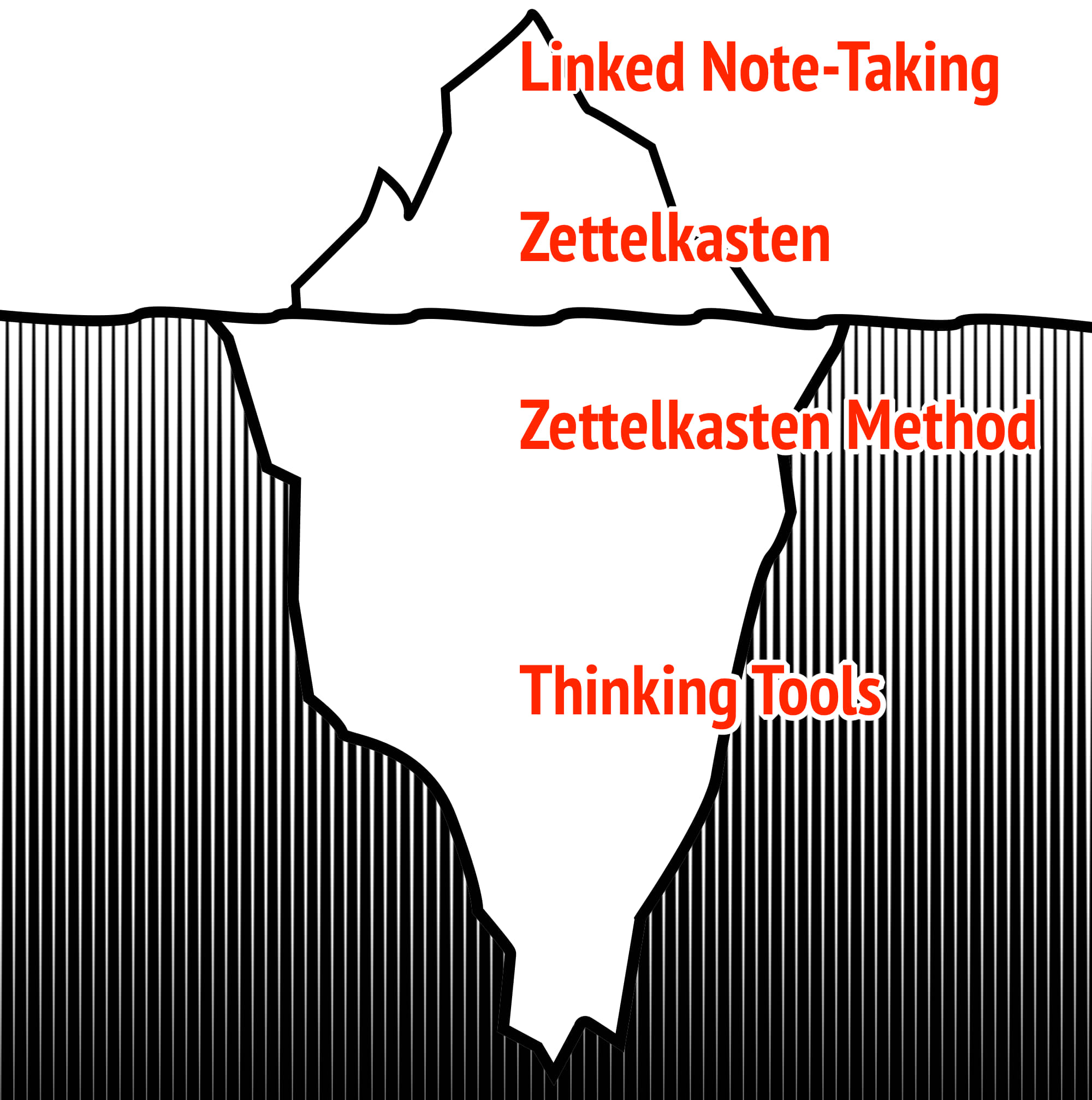Posts tagged “toolbox”
Mindscapes: The Zettelkasten as a Thinking Environment

In the past article Mindscapes: Thinking Environments in Your Way of Living we looked at thinking environments in your life in general. One of these thinking environments is the Zettelkasten. Cal Newport sees the Zettelkasten Method as one of the many ways of managing knowledge. In doing so, he overlooks a very special characteristic of the Zettelkasten: the Zettelkasten is a very special thinking environment: it is integrated.
The Heist – How to Process a Practical Book Quickly

If you don’t master the exploiting way of reading, you waste a lot of time and energy. Not every book should be processed in the same way. A novel contains different elements than a non-fiction book. But you also need to consider your own interests. For example, we read some books purely for the actionable information they contain. This requires an efficient and selective reading mode.
The Iceberg Theory of the Zettelkasten Method — Exploring the Depths

The Zettelkasten Method is not only a method of knowledge work. It is also a diagnostic tool. To demonstrate this, I would like to start with a short story from my work as a health and fitness trainer: A client contacted me because she wanted to lose weight. We discussed her situation and I sent her the first steps. One month later, she reported failure. She was unable to implement the program that we had discussed together. We reduced the program because my client said she was unable to implement it as planned due to time constraints and stress. The pattern repeated the next month. So we looked more closely for the causes. A surprising problem came to light:
Little Machines in Your Zettelkasten

A basic description of a Zettelkasten could be that it is just a hypertext of your notes. But this definition falls short of the intended goal to create a tool that assists your thinking. Technically, an interconnected quote collection could be a tool to assist your thinking and it would meet the above definition of a Zettelkasten: It is a hypertext of your notes (which consists of just quotes in this example). But it violates the spirit of what a Zettelkasten is. An interconnected quote collection does not express the full potential of the Zettelkasten Method since your past self could have created vastly more value for your current self. It is up to you how much you want to invest in your future self.
How Value is Created in a Zettelkasten (and Any System of Knowledge Work)

The first question we need to ask ourselves is: What is value? I propose a simple answer to this question: Valuable is what is useful to us. Let’s look into knowledge on nutrition as an example: Knowing how to eat healthy is not very useful to a lot of people because this knowledge is not put into practice. Most of the time this knowledge is not what is needed. Eating healthy is rather about building habits. Then again, knowledge on healthy nutrition becomes useful when those healthy habits are built.
The Zettelkasten Method for Fiction III - Create a Toolbox to Analyse Stories that Live in Your Zettelkasten

In the first part, we learned not to care about the source of the knowledge we deal with, but about its nature. In the second part, we learned what we are dealing with when we deal with story. So, how do we actually deal with story material using the Zettelkasten Method?